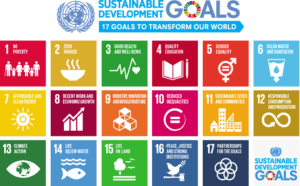Opinion
Union Views: People, planet and profit
Steen Vive
This article is more than 6 years old.

Danish companies are prioritising the UN’s sustainable development goals (photo: UN)
The world is facing massive climate challenges that require new solutions and business approaches. The next decade is critical.
Prioritising the goals
A recent study showed that Danish companies are prioritising the UN’s sustainable development goals (SDGs). I hope this development is mirrored globally.
Of these companies, 63 percent are aware of the SDGs – a twofold increase on 2017. The same trend applies to companies that have integrated SDGs into their strategies, with an increase from 12 percent in 2017 to 22 percent today.
Triple bottom line
The concept of sustainable development is not new. The Brundtland Commission defined it in 1987, and John Elkington theorised it in 1994 when he introduced the ‘triple bottom line’.
The accounting framework consists of three parts: ‘People’, the social equity bottom line; ‘Planet’, the environmental bottom line; and ‘Profit’, the economic bottom line.
According to the triple bottom line concept, a company’s responsibility lies with stakeholders rather than shareholders, which means companies must focus on their stakeholder interests and not on maximising shareholder profit. Unfortunately, the approach never became a globally incorporated business strategy.
A new hope
Unlike the triple bottom line, SDGs are being utilised by companies all over the world. They constitute a framework and global language for corporate communication about business activities that contribute to sustainable development.
The SDGs pave the way for sustainable development because they contain clear business potential for companies that manage to deliver the solutions needed to meet the global challenges.
More than consuming
The global market for sustainable solutions is rising steadily due to greater demand from consumers. In addition, people, especially the younger generations, now tend to seek purpose in their work beyond paying their bills. Not only do they want to buy more sustainably, they want to work more sustainably.
Hopefully, this tendency becomes a trend, making it crucial for companies to integrate SDGs into their strategies to attract and retain employees. If so, companies are forced to consider people, planet and profit, which means the number of companies integrating SDGs is bound to increase.

About
Steen Vive
Steen is senior advisor at Djøf, the Danish Association of Lawyers and Economists. He is a blogger and manager of various projects aimed at generating jobs in the private sector. In this column he writes about trends and tendencies in the labour market. Follow him on Twitter @SteenVive










































